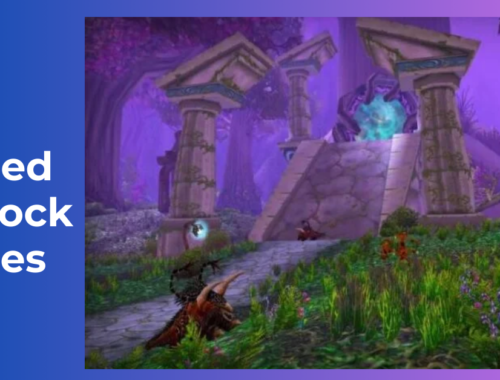
Understanding Evırı _ A Deep Dive into Turkish Cultural Heritage
Turkey, a country bridging Europe and Asia, is renowned for its rich tapestry of history, culture, and tradition. Among its many cultural phenomena, “Evırı” stands out as a captivating aspect of Turkish heritage.
“Evırı” represents traditional Turkish communal gatherings celebrating cultural rituals and fostering community bonds. Rooted in Turkey’s rich heritage, it blends historical practices with modern celebrations, reflecting the country’s diverse and hospitable culture.
Although the term may not be widely known outside of Turkey, it encapsulates significant elements of Turkish communal and cultural practices.
In this comprehensive article, we will delve into the essence of “Evırı,” exploring its historical background, cultural significance, modern interpretations, and its broader impact on Turkish society.
What is “Evırı”?
“Evırı” is a term deeply rooted in Turkish culture, referring to specific traditional gatherings or events that play a significant role in community life.
While the exact nature of “Evırı” can vary, it generally involves communal activities tied to rituals, festivals, or significant cultural practices.
The term may be less familiar to those outside Turkey, but it represents a fundamental aspect of local traditions.
To understand “Evırı,” it’s essential to consider its context within Turkish culture. It often encompasses events where community members come together to celebrate, perform rituals, or reinforce social bonds.
These gatherings are not merely social events; they are imbued with cultural and spiritual significance that reflects Turkey’s diverse heritage.
Historical Background of “Evırı”
The origins of “Evırı” are intertwined with Turkey’s rich historical tapestry. Turkey’s history is marked by the influence of numerous civilizations, including the Hittites, Greeks, Romans, Byzantines, and Ottomans.
Each of these civilizations has contributed to the development of local customs and traditions, including those related to “Evırı.”
Historically, “Evırı” was a way for communities to mark important occasions, whether they were agricultural milestones, religious celebrations, or seasonal festivals.
These gatherings were essential for maintaining the social fabric of communities, providing a structured way for people to come together and celebrate shared values.
Cultural Significance of “Evırı”
“Evırı” holds profound cultural significance in Turkey. It is more than just an event; it is a symbol of community, tradition, and continuity. Here’s how “Evırı” contributes to Turkish culture:
- Community Bonding: One of the most important aspects of “Evırı” is its role in fostering community connections. These gatherings bring people together, reinforcing social bonds and creating a sense of belonging. Through shared experiences and communal activities, participants strengthen their ties with one another.
- Preservation of Traditions: “Evırı” is a vital mechanism for preserving cultural heritage. By participating in these events, individuals keep traditional practices alive, passing them on to future generations. This preservation of tradition helps maintain a link to the past while ensuring that cultural practices continue to evolve and remain relevant.
- Cultural Expression: The ceremonies associated with “Evırı” often include traditional music, dance, and culinary practices. These expressions of culture provide a vibrant and dynamic way to celebrate heritage. The diverse forms of artistic expression seen in “Evırı” events highlight the richness of Turkish culture and its artistic traditions.
Modern Interpretations of “Evırı”
While the core elements of “Evırı” remain rooted in tradition, modern interpretations reflect the evolving nature of Turkish society. Here’s how “Evırı” is celebrated today:
- Festivals and Celebrations: Many contemporary festivals across Turkey incorporate elements of “Evırı.” These festivals celebrate local traditions and provide a platform for cultural expression. They may feature traditional music, dance, and food, offering a glimpse into the historical roots of “Evırı” while adapting to modern contexts.
- Cultural Events: Museums, cultural centers, and educational institutions often host events inspired by “Evırı.” These events showcase traditional crafts, rituals, and performances, providing opportunities for both locals and visitors to engage with Turkish heritage. Such initiatives play a crucial role in educating younger generations and preserving cultural practices.
- Educational Initiatives: Schools and universities may organize activities related to “Evırı” to teach students about their cultural heritage. These educational initiatives ensure that the traditions associated with “Evırı” are not only preserved but also understood and appreciated by younger generations.
How “Evırı” Reflects Broader Turkish Culture
“Evırı” serves as a microcosm of broader Turkish cultural values. Its emphasis on community, tradition, and celebration mirrors key aspects of Turkish society. Here’s how:
- Hospitality: Turkish culture is renowned for its hospitality, and “Evırı” reflects this through communal gatherings and shared meals. The spirit of welcome and generosity seen in “Evırı” events embodies the broader cultural value of hospitality.
- Family and Community: The focus on family and community in “Evırı” underscores the importance of these social units in Turkish life. “Evırı” events often involve extended families and local communities, highlighting the central role of these relationships in maintaining social cohesion.
- Rituals and Traditions: The ceremonial aspects of “Evırı” emphasize the significance of rituals in Turkish culture. From religious observances to seasonal festivals, rituals play a central role in expressing and preserving cultural values.
Personal Experiences with “Evırı”
Experiencing “Evırı” firsthand offers a unique perspective on Turkish culture. Many participants describe the experience as enriching and immersive, providing a deep connection to their cultural heritage.
Here’s what makes “Evırı” memorable:
- Traditional Dances and Music: One of the highlights of “Evırı” is the traditional music and dance that accompany these gatherings. Participants often engage in folk dances and sing traditional songs, creating a lively and festive atmosphere.
- Communal Meals: Food plays a central role in “Evırı” events. Communal meals bring people together to share traditional dishes, fostering a sense of community and reinforcing cultural ties.
- Storytelling and Rituals: Storytelling is an integral part of “Evırı,” with participants sharing tales and legends that connect them to their cultural past. Rituals performed during “Evırı” events also play a role in maintaining cultural continuity and expressing shared values.
Modern Challenges and Opportunities
As Turkish society continues to evolve, “Evırı” faces both challenges and opportunities. The changing social landscape presents new ways to engage with and preserve cultural practices.
Here are some of the key challenges and opportunities:
- Preserving Traditions in a Modern World: Balancing traditional practices with modern lifestyles can be challenging. However, embracing innovation while preserving core elements of “Evırı” offers opportunities to keep traditions relevant and engaging for younger generations.
- Cultural Tourism: The growing interest in cultural tourism presents an opportunity to showcase “Evırı” to a global audience. By offering authentic experiences and educational opportunities, Turkey can attract visitors interested in learning about its cultural heritage.
- Digital Engagement: Technology provides new ways to engage with “Evırı” and share it with a broader audience. Digital platforms can be used to document and promote “Evırı” events, making them accessible to people around the world.
Conclusion
“Evırı” is a vibrant and essential aspect of Turkish cultural heritage, representing the country’s rich history, traditions, and communal values.
By exploring “Evırı,” we gain a deeper understanding of the cultural practices that shape Turkish society and contribute to its unique identity.
From its historical roots to its modern interpretations, “Evırı” continues to play a significant role in preserving and celebrating Turkey’s cultural heritage.
As Turkey navigates the complexities of modern life, “Evırı” remains a testament to the enduring importance of tradition, community, and cultural expression.
Through its various forms and practices, “Evırı” offers a meaningful way to engage with and appreciate Turkish culture, making it a compelling subject for anyone interested in global traditions and cultural heritage.
FAQs About “Evırı”
What does “Evırı” mean?
“Evırı” refers to traditional communal gatherings or events in Turkish culture, often associated with rituals, festivals, or significant cultural practices.
How is “Evırı” celebrated today?
Modern celebrations of “Evırı” include festivals, cultural events, and educational initiatives that incorporate traditional practices and customs.
Why is “Evırı” important in Turkish culture?
“Evırı” is important because it fosters community bonding, preserves cultural traditions, and reflects broader cultural values such as hospitality and family.
Can tourists experience “Evırı”?
Yes, tourists can experience “Evırı” through cultural festivals, local celebrations, and events in Turkey that highlight traditional practices.
What are some traditional elements of “Evırı”?
Traditional elements of “Evırı” include communal meals, music, dance, storytelling, and rituals that reflect Turkish cultural heritage.
You May Also Like

Coded Warlock Notes _ An In-Depth Guide
July 28, 2024
Orangîa _ An Enchanting and Unique Destination
July 19, 2024

